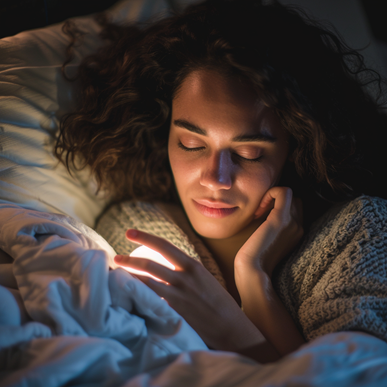
Hey there! Ever find yourself tossing and turning at night, wondering why you can’t get a evening Routine to Sleep? You’re not alone. A lot of us struggle with winding down after a busy day. But guess what? The key to better sleep might be simpler than you think—it’s all about improving your evening routine. Let’s dive into some easy and friendly tips to help you get that restful slumber you’ve been dreaming about.
Why Your Evening Routine Matters
So, here’s the scoop: your evening routine to dress dramatically affects how well you sleep. Think of it as a signal to your body that it’s time to start winding down. When you stick to a routine, your body gets the message that it’s almost bedtime, making it easier to drift off into dreamland. Plus, being consistent with your bedtime helps set your internal clock, so you wake up feeling refreshed and ready to go.
Create a Consistent Bedtime
One of the easiest ways to improve your sleep is to set a regular bedtime. Try to go to bed and wake up simultaneously every day, even weekends. This regulates your sleep-wake cycle. To help you remember, you might want to set a bedtime alarm as a little nudge to start winding down. Over time, your body will get used to this routine, and you’ll find falling and staying asleep easier.
Make Your Bedroom a Sleep Sanctuary
Creating a cozy and relaxing sleep environment is key. Your bedroom should be a calm space that’s inviting and restful. Here’s how you can make your bedroom a sleep sanctuary:
- Dim the Lights: Bright lights can mess with your sleep. Try using dim lighting in the evening and consider blackout curtains to keep the room dark.
- Comfortable Beddings: Get a decent mattress and pillows that make you comfortable. Soft, breathable bedding also helps you stay cozy throughout the night.
- Keep It Cool: A cool room is generally better for sleeping. Aim for a comfortable temperature, usually around 65°F (18°C).
Limit Screen Time Before Bed
Evening Routine to Sleep while watching TV or browsing our phones before bed is something everyone enjoys, the blue light from displays makes falling asleep more difficult. This light throws off your melatonin levels, the hormone used to control sleep. To help avoid this, try shutting off screens at least one hour before bed. Rather, you might unwind and relax, read a book, or turn on soothing music.
Try Relaxation Techniques
Evening Routine to Sleep If you’re having trouble relaxing before bed, why not try simple relaxation techniques? They help calm your mind and prepare your body for sleep. Here are a few ideas:
- Reading: Pick a book that helps you unwind. Just make sure it’s not too exciting.
- Meditation: Spend a few minutes meditating or doing deep breathing exercises. It’s a great way to calm your mind and reduce stress.
- Gentle Stretching: Light stretching or yoga can prepare you for sleep and ease your muscles.
Watch What You Eat and Drink
What you eat and drink in the evening can affect how well you sleep. Heavy meals and caffeine can be problematic. Aim for a lighter meal instead of having a big, heavy dinner right before bed. And be mindful of caffeine—try to avoid it in the afternoon and evening. If you’re hungry before bed, opt for a small snack that promotes sleep, like a banana or a handful of almonds.
Exercise Earlier in the Day
Exercise is excellent for improving sleep, but timing is essential. If you exercise too close to bedtime, it might make it harder to fall asleep. Aim to finish any vigorous workouts at least a few hours before bed. Gentle activities like stretching or yoga are perfect for the evening, as they help you relax without overstimulating you.
Building Your Perfect Routine
Establishing an evening ritual fit for you requires some trial and error. Start by making small changes and seeing what helps you relax and prepare for sleep. The goal is to find activities that make you feel calm and ready for bed. Stick with it, and don’t be afraid to adjust things as needed.
Troubleshooting Sleep Issues
Evening Routine to Sleep should you still find difficulty sleeping even with these suggestions, don’t worry—there’s always room for adjustments. Look at your routine and see if anything might be interfering with your sleep. Sometimes, asking a healthcare professional to address any underlying issues is helpful.
Wrap-Up
Improving your evening routine to sleep can make a big difference in your sleep quality. Establishing a regular bedtime helps to have a relaxing effect. environment, limiting screen time, and incorporating relaxation techniques, you’re on your way to a better night’s sleep. Remember, it’s all about finding what works best for you and making it a part of your nightly routine. Sweet dreams, and here’s to a more restful night’s sleep!
If you want to learn my #1 Nature’s Bounty Anxiety & Stress Relief , Click Here Now.





